What Every Puppy Owner Needs to Know About Parvo in Puppies?
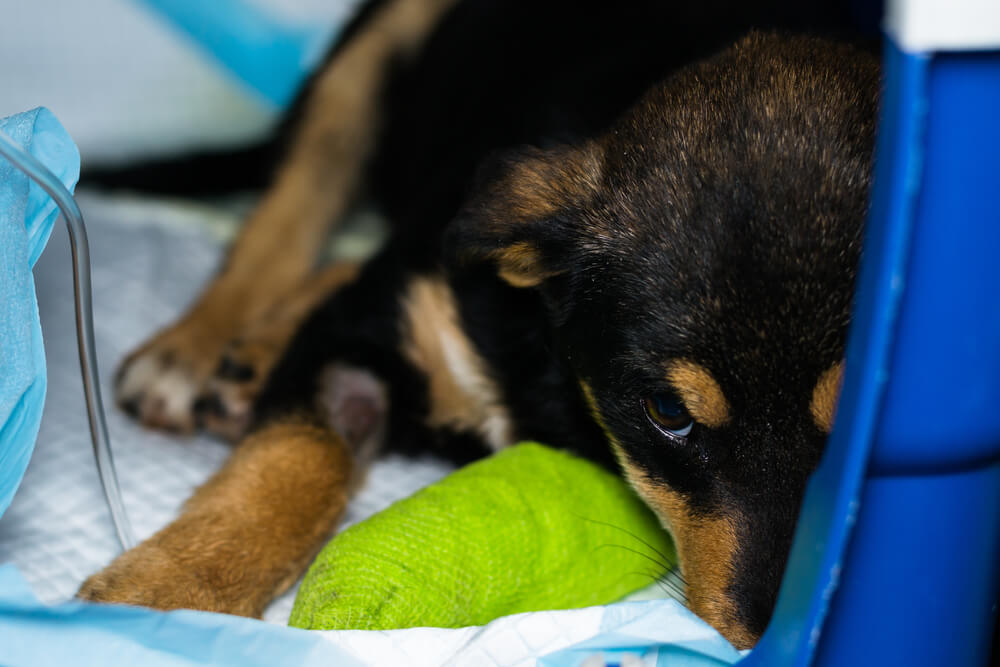
Table of Contents
Listen To The Article
Introduction to What Every Puppy Owner Needs to Know About Parvo in Puppies?
First, let’s talk about what parvo is. Parvovirus (or parvo for short) is a highly contagious disease that affects dogs, puppies, and adult dogs alike.
It attacks the intestinal tract, causing your pup to puke and have diarrhea.
Severe cases of the disease are fatal, but there is a vaccine that can prevent parvo.
Parvo in puppies is a heartbreaking and tragic disease.
Puppies are born with their mothers’ antibodies, but these wear off after about three months, leaving them vulnerable to harmful bacteria and viruses.
Parvo is a nasty little bug that causes dehydration, diarrhea, and vomiting.
Left untreated, the disease can cause permanent damage to the puppy’s intestines and even death.
It is a deadly virus for puppies, is easily prevented and treated if caught early.
Unfortunately, most owners are unaware of this until it is too late when their puppy has already contracted it.
Even if you have heard of the virus and think you know enough about it, it’s important to always remember that a lack of knowledge can lead to devastating consequences.
It causes diarrhea, vomiting, and bloody stools in puppies. If left untreated, it can lead to dehydration and even death.
It’s especially common in puppy mills and shelters.
While there is no known cure for this virus, prompt and proper treatment can save your dog’s life.
It contains information on the symptoms of parvo, how you can catch it, how to prevent it, and most importantly, how to treat it.
That’s why it’s so important for new puppy owners to know the signs of parvo.
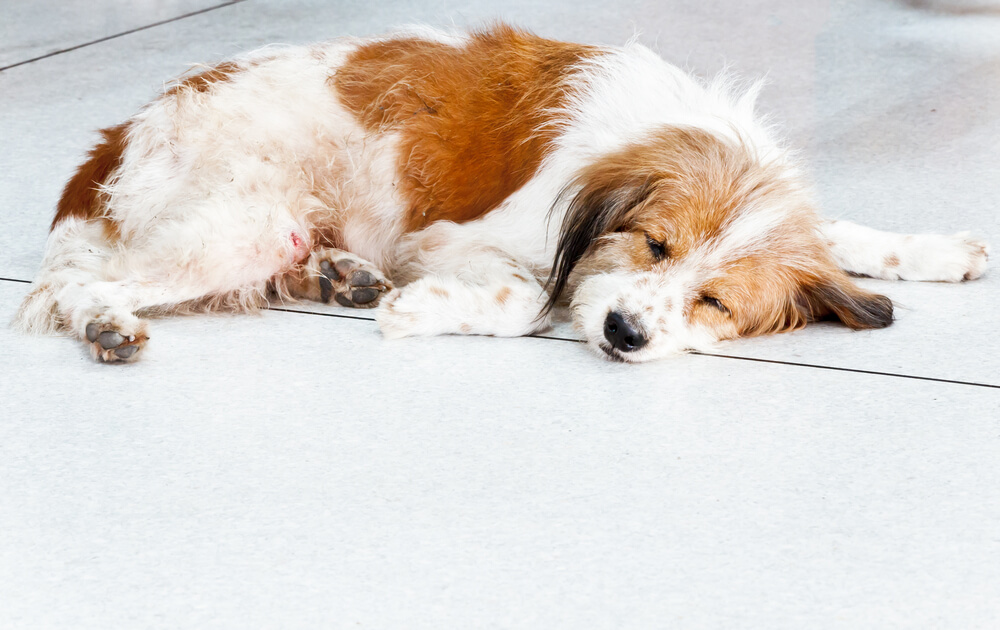
What Is Parvo?
Parvo in puppies is caused by the canine parvovirus.
This virus is highly contagious and spreads through direct contact with an infected dog or by indirect contact with a contaminated object.
Your puppy is exposed to the parvovirus every time he sniffs, licks, or consumes infected feces.
Indirect transmission occurs when a person who has recently been exposed to an infected dog touches your puppy, or when a puppy encounters a contaminated object, like a food or water bowl, collars and leashes, and the hands and clothing of people who handle infected dogs.
It classifies the virus as a disease of the stomach and small intestines, as this is where the virus does the most damage.
The virus prefers to infect the small intestine, where it destroys cells, impairs absorption, and disrupts the gut barrier.
Parvo in puppies also affects the bone marrow and lymphopoietic tissues, and in some cases can also affect the heart.
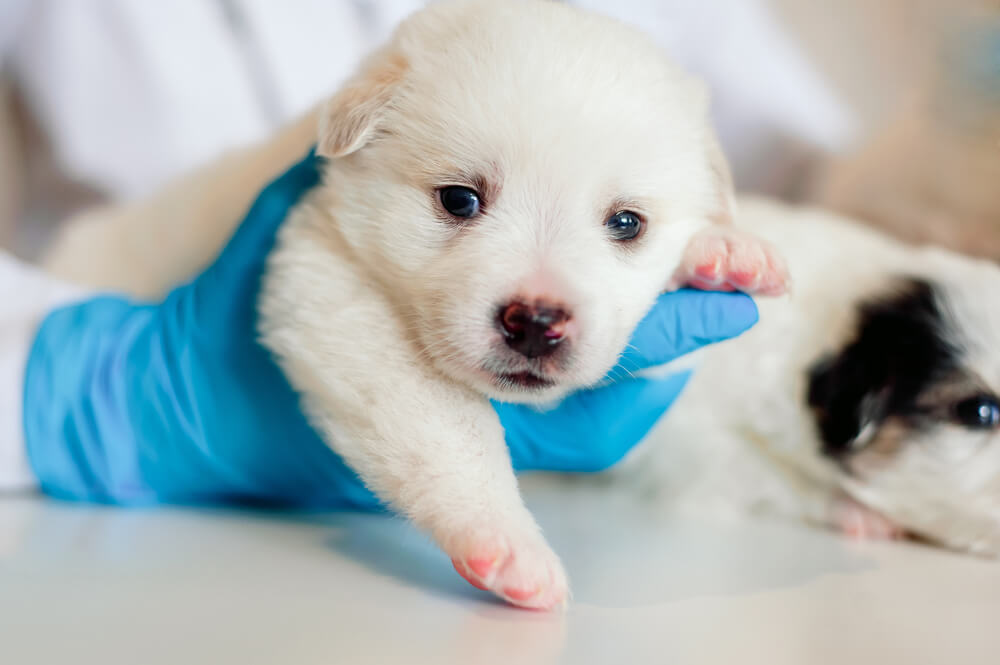
Why Do Puppies Get Parvo?
Puppies ages six weeks to six months are the most susceptible to parvo.
Puppies younger than six weeks old still retain some of their mother’s antibodies, assuming that the dam received her full series of parvo vaccinations.
Puppies are vaccinated against parvo at approximately 6, 8, and 12 weeks of age.
They are vulnerable to the disease until they have received all three shots in their vaccination series, which means owners need to take extra precautions during this time to prevent their puppies from contracting the virus.
Puppies should receive a dose of canine parvovirus vaccine between 14 and 16 weeks of age, regardless of how many doses they received earlier, to develop adequate protection.
The severity of parvo cases varies.
The stress of weaning can lead to a more severe case of parvo in puppies, as stress weakens the immune system.
A combination of parvo and a secondary infection or a parasite can also lead to a more severe case of parvo in puppies.
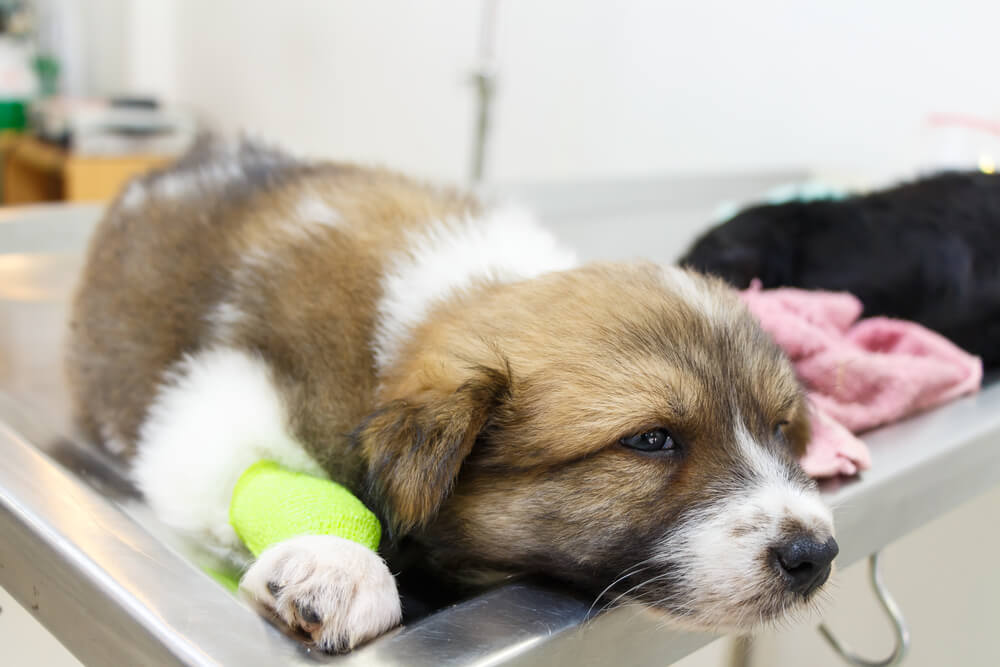
How Do Dogs Get Parvo? Is Parvo Airborne?
Parvovirus is an incredibly contagious disease that spreads quickly and efficiently.
So how exactly does it spread?
While canine parvovirus is not airborne, it can be found on many surfaces within the environment.
It is spread by contact with contaminated feces, but you don’t have to see solid feces for the virus to be present.
It can live on the ground or on surfaces in kennels, on peoples’ hands, or on the clothing of people that have been contaminated.
Dogs could also carry it on their fur or paws if they have come into contact with contaminated fecal material.
Parvovirus can live outdoors for months, if not years, and is resistant to many disinfectants, although it is susceptible to diluted bleach and some specialized cleaners commonly used in veterinary hospitals.
Can Humans Get Parvo?
Parvovirus is species-specific, so humans have their own version of the virus.
This means that humans cannot get parvovirus from dogs, and dogs cannot get parvovirus from people.
However, it’s still important to use the utmost caution by wearing personal protective equipment if you come into contact with an infected dog.
While you may not get parvo, the virus could be spread to another dog via your hands or the clothes you are wearing.
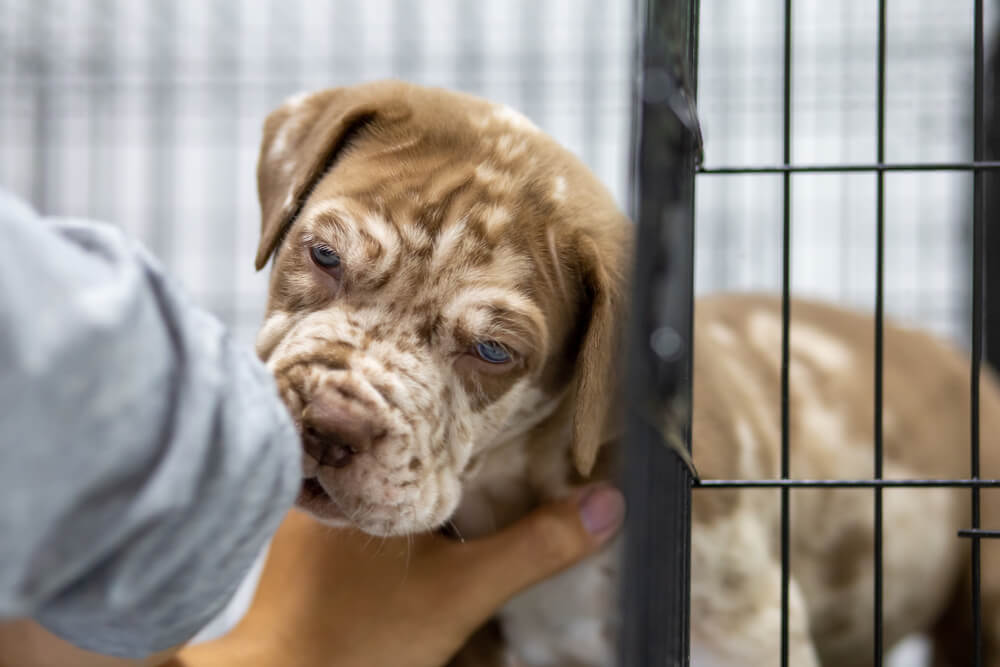
How Long Are Puppies With Parvo Contagious?
Puppies and adult dogs with parvo start shedding the virus within 4-to-5 days of exposure.
Unfortunately for conscientious owners, this time period does not always coincide with the first parvo symptoms, which means dogs can be contagious before owners even realize that they are sick.
Puppies with parvo continue to shed the virus for up to 10 days after clinical recovery, so be sure to keep any puppies recovering from parvo away from unvaccinated and partially vaccinated dogs.
Outside of your dog, the virus can survive indoors for at least one month, and outdoors it can survive for many months and even a year under the right conditions.
Talk to your vet about the best way to remove the parvovirus from your home environment or kennels.
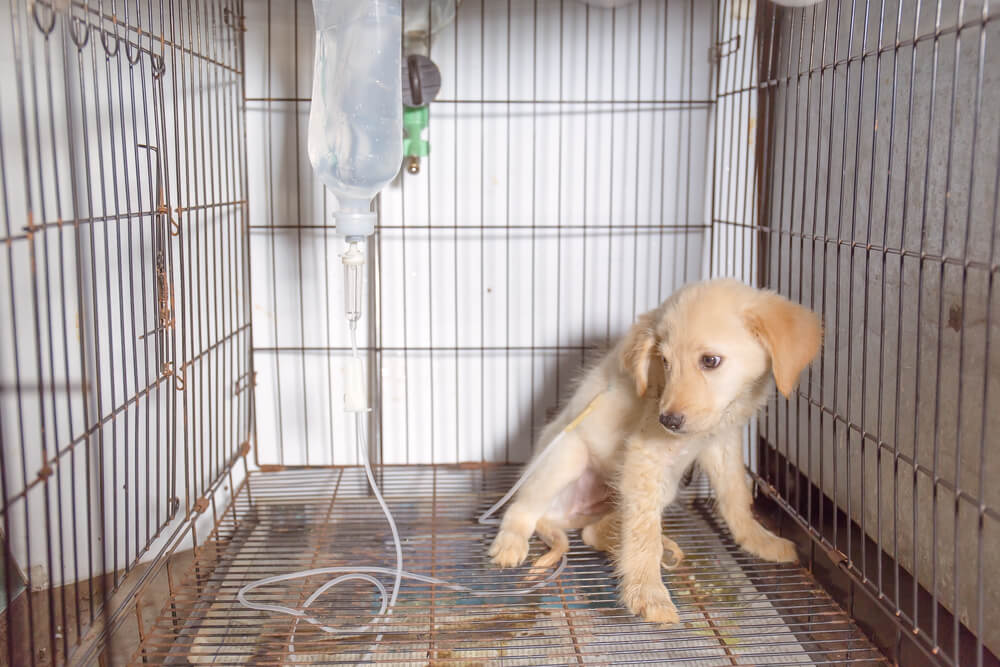
What Causes Parvo in Dogs?
The canine parvovirus causes parvo in dogs, and it can be transmitted in two ways.
The first is by direct contact through the nose and mouth with infected poop, which can happen when a dog sniffs or licks a surface or another dog that has been contaminated with feces.
Since puppies explore their world through smell and love to mouth things, it is easy to see how a curious puppy could contract the parvovirus.
The second method of transmission is through indirect contact.
The virus can survive on clothing, equipment, on human skin, and in the environment.
Indirect transmission occurs when a puppy comes into contact with a contaminated person, object, or environment.
The parvovirus is a particularly resilient virus.
It can survive indoors at room temperature for at least two months and is resistant to many commonly used cleaners and disinfectants.
Outdoors, the parvovirus can survive for months, and even years, if protected from direct sunlight.
This is why hospital quarantine of the infected dog and proper cleanup of the environment is especially important.
Shoes that have come into contact with infected feces can also bring the virus into a dog’s environment, which is concerning since there is evidence that parvo can live in ground soil for up to one year.
If you suspect that you have come into contact with feces at all, you will need to wash the affected area with household bleach, one of the few disinfectants known to kill the virus.
Once a dog has contracted parvo, the virus replicates.
This replication takes place in the small intestines, lymphopoietic tissue (lymph nodes, thymus, etc.), and bone marrow.
This leads to severe GI problems and in rare cases, myocarditis (inflammation of the heart).
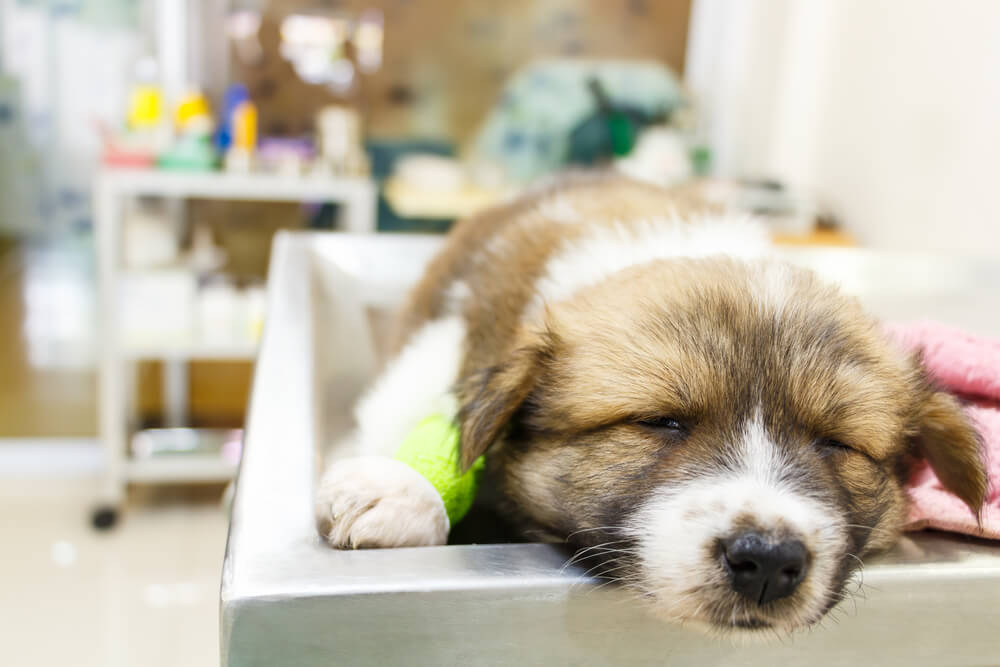
Symptoms of Parvo in Puppies
A puppy with parvo is a very sick dog.
The sooner you catch the early signs of the virus in puppies, the sooner you can get your dog to the vet.
Since parvo is common in young puppies, you should call your vet any time your puppy is feeling under the weather, but you should also be aware of the specific symptoms of parvo in puppies:
- Bloody diarrhea
- Vomiting
- Fever
- Lethargy
- Anorexia
- Weight loss
- Weakness
- Dehydration
- Depression
All of these symptoms are serious by themselves and could be a sign of parvo or another serious illness.
You should contact your vet immediately if you suspect your puppy has parvo, and be sure to notify the vet’s staff ahead of time of your suspicions and your puppy’s symptoms so that they can take the appropriate quarantine procedures to prevent your puppy from infecting other dogs.
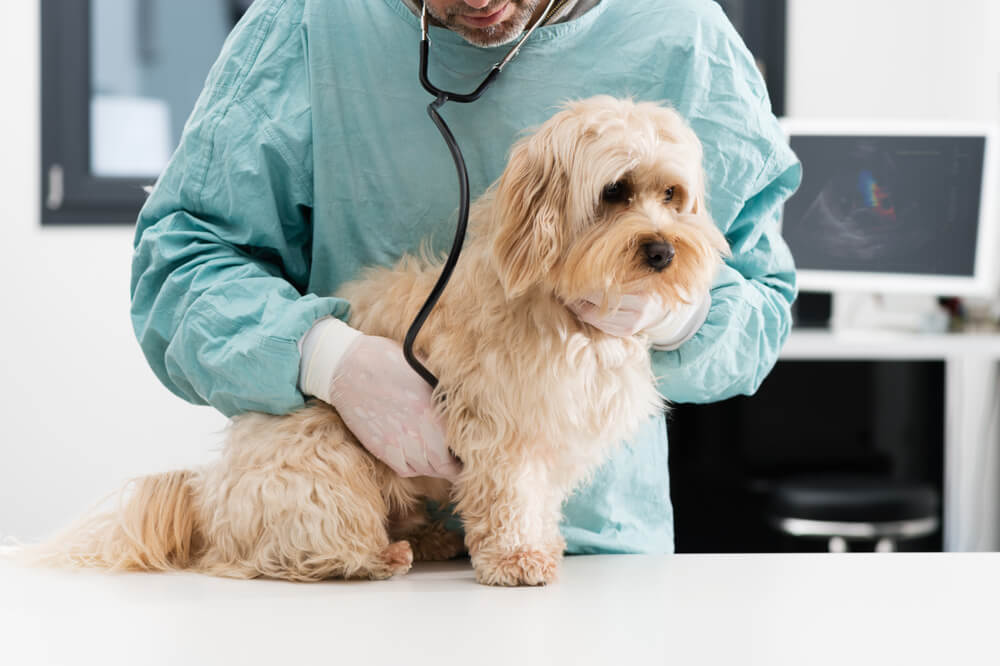
Parvo Treatment
If you suspect that your dog has parvo, he needs immediate veterinary attention.
Parvo is a potentially fatal virus that requires intensive care, and the sooner your canine is diagnosed the better.
Your vet will most likely recommend hospitalizing your dog in an isolation ward, where he will offer supportive care and monitor your dog for secondary infections.
Depending on the severity of the case, your vet may prescribe a series of medications, including antibiotics to prevent bacterial infections from entering your dog through the damaged walls of his intestines.
To make matters worse, parvo also reduces your dog’s ability to fight infection by lowering his white blood cell count.
Your vet will provide your dog with supportive fluids, nutrition, and medications that will hopefully save his life, which is why taking your dog to the vet is the best thing you can do for him.
Most puppies that survive the first 3-to-4 days will make a complete recovery, which usually takes around one week.
Your vet will walk you through the recovery process and tailor a recovery plan best suited to your puppy’s needs.
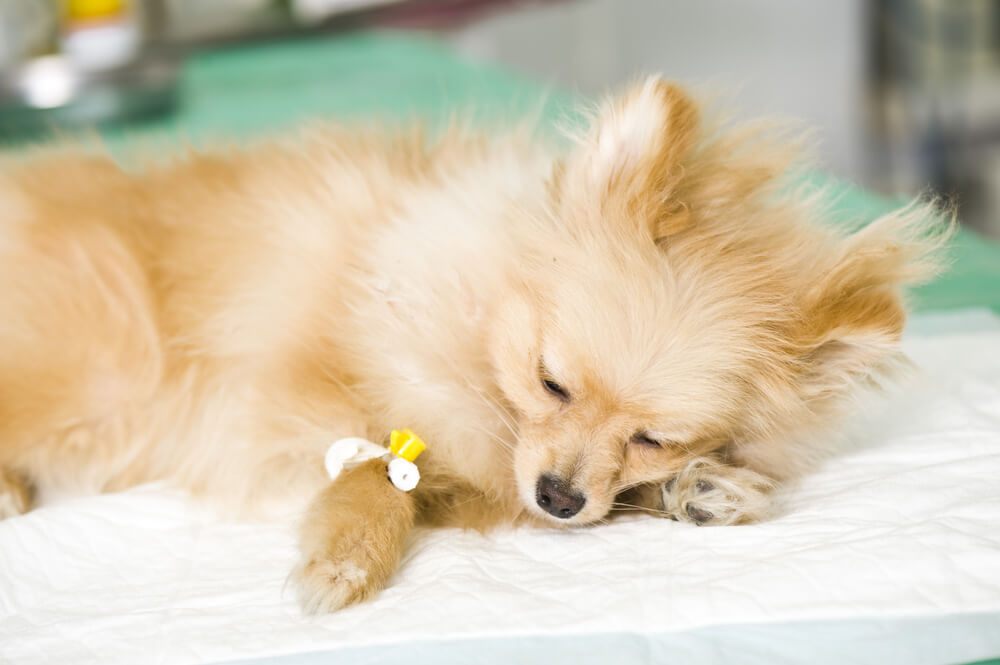
Parvo Prevention
Parvo is a preventable disease, but even vaccinated dogs are not 100% protected from the virus.
Vaccines for the parvovirus are recommended for all puppies and are usually given in a series of three shots when the pup is between 6-to-8 weeks old, again at 10-to-12 weeks, and at 14-to-16 weeks.
A booster shot is administered one year later and every 3 years after that.
Unvaccinated puppies and incompletely vaccinated puppies should not be exposed to unvaccinated dogs or to environments where unvaccinated dogs could have introduced the parvovirus, like dog parks or boarding facilities.
While it might be tempting to take your new puppy with you everywhere you go, her health depends on keeping her safe until she is fully vaccinated against this life-threatening disease.
Unvaccinated puppies can be safely socialized with fully vaccinated adult dogs in safe environments like your home.
Most puppy classes require proof of vaccination before you can enroll your puppy. Vaccination reduces the risk of the spread of deadly diseases like parvo, so make sure that you do your research before enrolling your young puppy in a class.
Socialization and training are very important for proper development, but it is up to you to make sure your puppy is socialized in a safe environment.
A puppy should never be placed in situations such as daycare or training classes until they have completed their vaccines at 14-to-16 weeks of age.
Understanding parvo in dogs is the first step toward preventing the spread of this dangerous virus.
Make sure your puppy gets vaccinated at the appropriate ages and protect your unvaccinated and partially vaccinated puppies by keeping them in a safe environment.
If you suspect your puppy has parvo, call your vet immediately.



